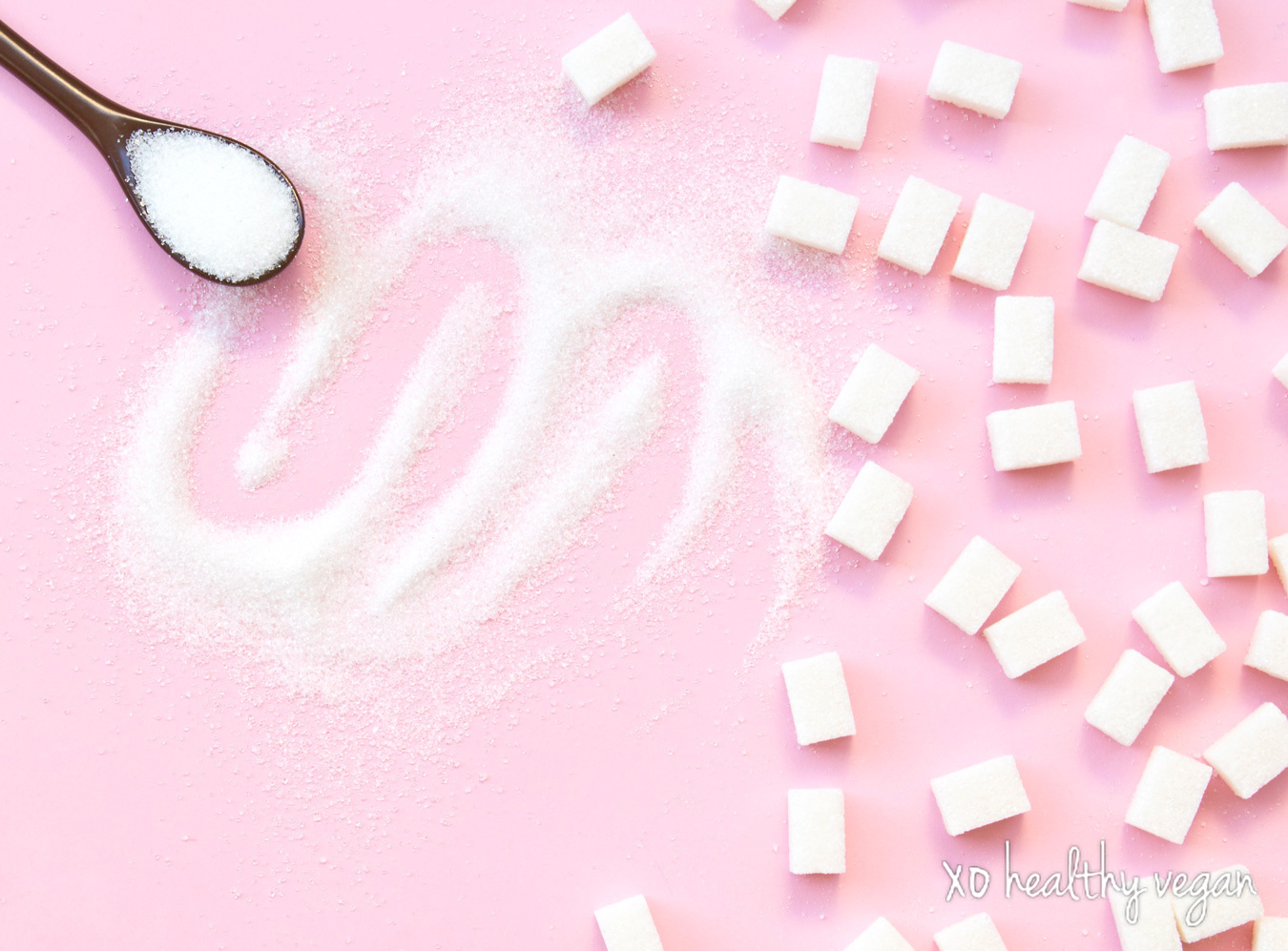Sugar: in some ways it seems so innocuous; after all, it comes from plants, and yet it is villainized in contemporary wellness circles, blamed for maladies ranging from inflammation to diabetes. Why did sugar become the bad guy of the food world? As with many modern health concerns, overconsumption is the likely culprit.
Too much of a good thing
It’s not that sugar—the crystalized juice of giant white sugar beets and the bamboo-like sugarcane plant—is inherently bad, but like so many consumable products, its ubiquity makes it a hazard to our health, especially when it’s hidden in so many of the foods we eat on a regular basis.
Our liver metabolizes sugar—whether simple sugars like fructose and glucose or compound sugars like sucrose—much in the same way it metabolizes alcohol, converting those soluble carbs into fat that can strain this very vital organ. Sugar also kickstarts inflammation, which weakens the immune system, leaving us more vulnerable to illness.
Avoiding sugar altogether is virtually impossible (though not entirely impossible; a sugar cleanse is worth experimenting with), but how much can we safely consume without compromising our health? Medical professionals suggest not consuming more than nine teaspoons per day—roughly the equivalent of one sugary carbonated drink. The World Health Organization recommends sugar comprise no more than 10% of our total caloric intake for the day.
Hiding in plain sight
It’s easy to identify sugar in common packaged foods like ice cream or candy, but it also lurks in alarmingly high quantities in foods we wouldn’t necessarily implicate, like boxed cereals (even granola!), non-dairy milks, salad dressings, and crackers. Those accidentally vegan Oreos in your pantry? A single serving contains 14 grams of sugar, which is nearly 30 percent of the recommended daily allowance. And you might be surprised to discover that the juicy apple you just bit into boasts 25 grams of sugar!
So while the body responds to sugar the same way no matter the source, foods with natural sugars such as fruit contain beneficial attributes like fiber, vitamins, and minerals that have a more benign impact than, say, a candy bar, which is carbohydrate on top of carbohydrate with little-to-no nutritional value. The rule of thumb is to consume any sugar in moderation; and avoid overly processed sugars whenever possible.
Another reason to avoid processed and added sugars is that the sugar itself isn’t always vegan; conventional cane sugar is often bleached using bone char from cows. (C&H and Domino are two mainstream brands that rely on bone char during processing.
Scores of sweet possibilities
Ever since I was little, I’ve had a fondness for sweets, especially chocolate and creamy desserts. As I’ve gotten older and made healthy living a top priority, I’ve changed my relationship with sugary treats and opt instead for just a little bite of chocolate or bowl of juicy berries or another fruit when sugar cravings hit. And when I do indulge, I choose my sugars wisely, since, as we know, they are not all created equally!
The next time you’re preparing to bake a special dessert or try the latest vegan sweet to hit the market, look for sweeteners that have a lower glycemic index (that won’t spike your blood-sugar levels and cause a subsequent crash). These 10 common non-sugar sweeteners happen to be vegan, but vary considerably in their nutrient content.
10 vegan-friendly sweeteners
- Sucanat
Sugarcane–the same reedy plant that gives sugar its name, is also the source of a less processed, more whole-food form of sugar known by the brand name Sucanat or simply as evaporated cane juice. It can be used just like table sugar, and it is always vegan! And bonus: It boasts a slew of minerals, including calcium, magnesium, potassium, and iron. - Maple Syrup
When the clear sap of the maple tree is boiled, its naturally occurring sugars are condensed, resulting in a thick, pourable liquid that many of us like to drizzle over our a.m. oatmeal and weekend waffles. While it’s primarily composed of sucrose (as is white table sugar), it has benefits: a recent study suggests it might even inhibit the growth of gastrointestinal cancer cells. - Date Syrup
As its name suggests, date syrup is made from dates, the small dried fruit of the date palm tree. It is considered one of the world’s oldest sugars, mentioned in Biblical texts and also very popular in Middle Eastern cuisines. It contains small quantities of potassium and fiber, so it’s sugar with added value, and has a wonderfully caramel-like flavor. - Stevia
The stevia plant is an unassuming green-leaf shrub that resembles mint, but take a nibble of one of its tiny leaves and your taste-buds will be in for a shock. It is off-the-charts sweet! Besides being low-glycemic, it requires far less land and water to grow than conventional sugar, making it an eco-friendly alternative sweetener. - Monk Fruit
This sweetener, made from the Chinese fruit of the same name, is growing in popularity, turning up in everything from keto cake mixes to soda pop. Like stevia, Monk fruit is a calorie-free sweetener that’s significantly sweeter than sugar. Just a little goes a long way! For first-timers, a bit in your morning cup of tea is a good place to test the waters. - Agave
This honey-like syrup is extracted from the agave cactus, and is mostly fructose, meaning that it has a lower glycemic index than sugar. And while it won’t spike your blood sugar the same way table sugar will, it should still be consumed in moderation. Try it in any recipe calling for honey for near-identical results! - Barley Malt
This thick, subtly sweet syrup gained popularity in the US in the 1920s, when sugar shortages forced people with a sweet tooth to look beyond the standard sweetener of the day and toward more accessible alternatives. It has a mild, earthy flavor and is surprisingly high in B vitamins, specifically B3, otherwise known as niacin. Try it over pancakes! - Molasses
If you were alive in the 1970s, you’ve probably tasted molasses, which had its moment in the spotlight in the early days of the natural foods movement. A byproduct of the sugar-production process, It’s a thick, dark syrup with a very assertive flavor, and contains surprisingly large amounts of magnesium and other minerals. - Coconut Sugar
This tan-colored sugar is made from the sap of the coconut palm flower. Besides small quantities of minerals such as iron and zinc, coconut sugar contains inulin, a fiber that slows sugar absorption in the body, making it a low-glycemic option. It is, however, very high in fructose, so best consumed in moderation. - Brown Rice Syrup
With more calories and a higher glycemic index than standard issue table sugar, brown rice syrup is not necessarily a “healthier” sweetener, but it is a low-fructose option that is easier for your liver to metabolize than high-fructose sweeteners such as corn syrup.


